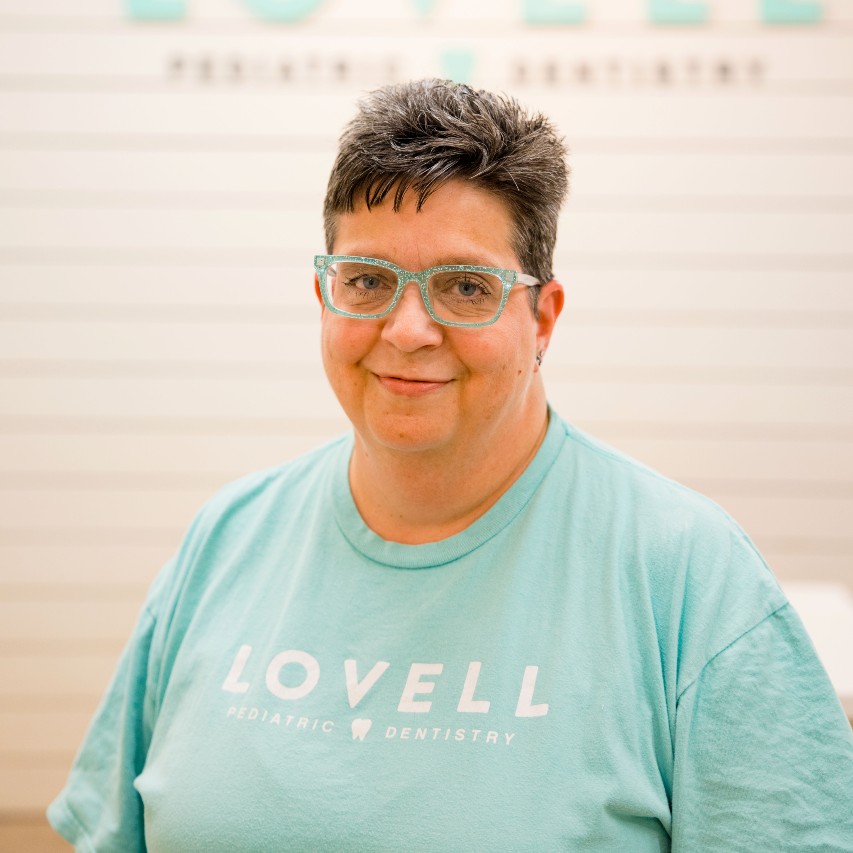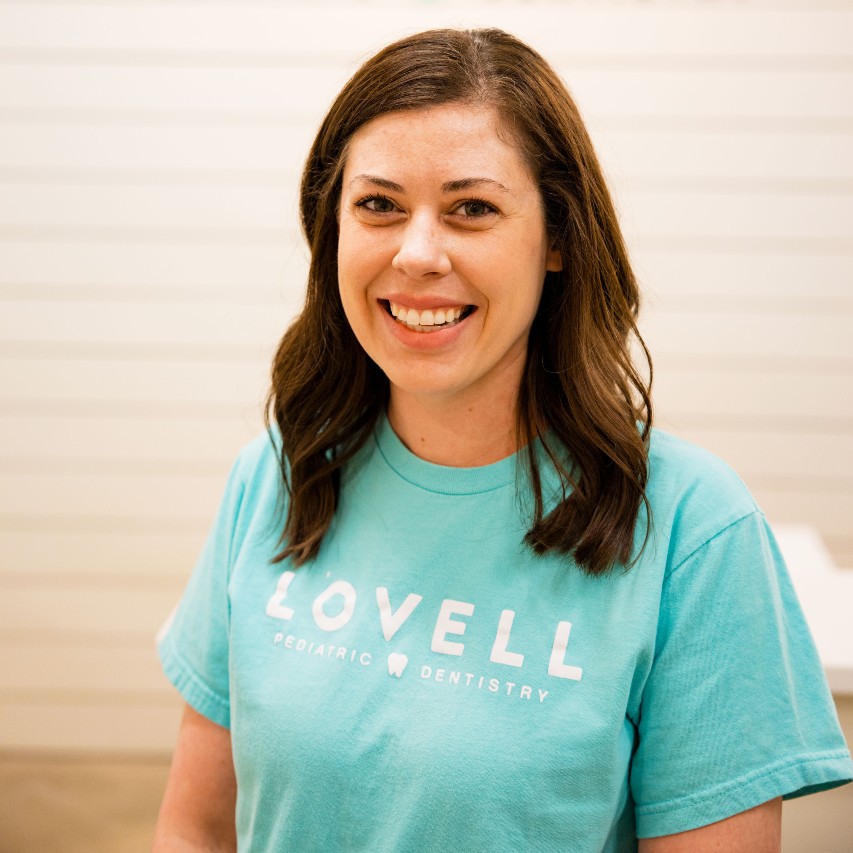




We're Family. Now you are, too.
your family during your appointment.

Dr. W. Adrian Lovell, III
You can call him Dr. Lovell, Dr. A, or just Doc. Whatever you call him, he wants to help educate you and your family about oral health. Dr. Lovell is a native of Pensacola, Florida. He attended the University of Florida, where he received both his undergraduate and dental degrees. After moving to Birmingham, Dr. Lovell completed a two-year pediatric dental residency at UAB and Children’s of Alabama. During his residency, Dr. Lovell learned how to best treat children and those with special needs. Dr. Lovell lives in the Birmingham area with his wife, Lauren, and their three sons, Adrian, Tilson, and Edwin ‘Win,’ and their two Golden Retrievers, Lucy and Dolly.

Sheri

Celia

Ally

Sarah

Lara

Lucy (Therapy Dog), Dolly (Therapy Dog in training)
Lucy and Dolly are Golden Retrievers that accompany Dr. Lovell at the office each day! Lucy was adopted by Dr. Lovell’s family in 2019 and Dolly joined the family in October 2023. Dolly and Lucy love making friends of all ages and making people feel comfortable at the dentist.

Gracie
Dr. Lovell and his wife adopted Gracie at a Camp Smile a Mile fundraiser in 2013, and she served as our therapy dog until she died of illness in October 2022. Gracie is sure missed around our office. She had a calming presence and demeanor and was loved by all.








